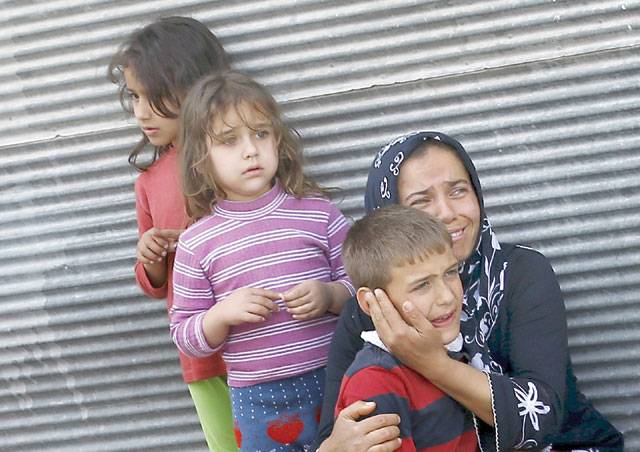ST PETERSBURG - The intensified fighting in the Libyan capital has put half a million children in immediate danger in Tripoli, Geert Cappelaere, UNICEF regional director for the Middle East and North Africa, said in a statement published on Monday, adding that over 2.6 million children were in need across Libya.
Local media reported Sunday, citing the Libyan Ministry of Health, that the death toll in the clashes in the Libyan capital of Tripoli had increased to 115 people, while at least 560 were now injured.
“Over 1,200 families have been displaced in the past 48 hours alone as clashes intensified in southern Tripoli, bringing the total number of displaced to over 25,000. UNICEF estimates half are children. Half a million children in immediate danger in Tripoli. More than 2.6 million children in need across the country,” Cappelaere said in a statement.
According to the UNICEF official, the shortage of food water and electricity is among the daily challenges that people in Libya face.
“The country is facing an outbreak of measles, with over 500 cases reported – most of which are among children. A growing lack of fully functioning health services will only result in more cases of measles,” the regional director said.
Cappelaere stressed that more children were reportedly being recruited to fight, which also put them in immediate danger.
The UNICEF official reiterated the organization’s calls on all parties to the conflict in Libya to protect children at all times.
“The way out of the recent fighting and the crisis in Libya is not through violence but through diplomacy and a political agreement, with the interest of children at the very centre,” he said in a statement.
The Libyan capital of Tripoli has been hit by multiple clashes between rival militant groups since the end of August, when the Seventh Brigade armed group launched an attack against other militias. Earlier in September, the rival militant groups reached a ceasefire agreement under the UN auspices. However, the hostilities have intensified lately, with daily violations of the truce being reported.
Libya has been torn apart by conflict since long-time leader Muammar Gaddafi was overthrown in 2011. The eastern part of the country is governed by the parliament, backed by the Libyan National Army (LNA) and located in Tobruk. The UN-backed Government of National Accord (GNA), headed by Prime Minister Fayez Sarraj, operates in the country’s west and is headquartered in Tripoli.






